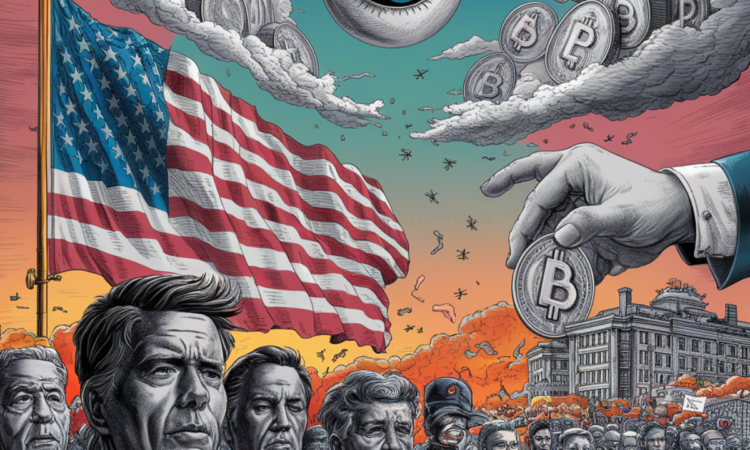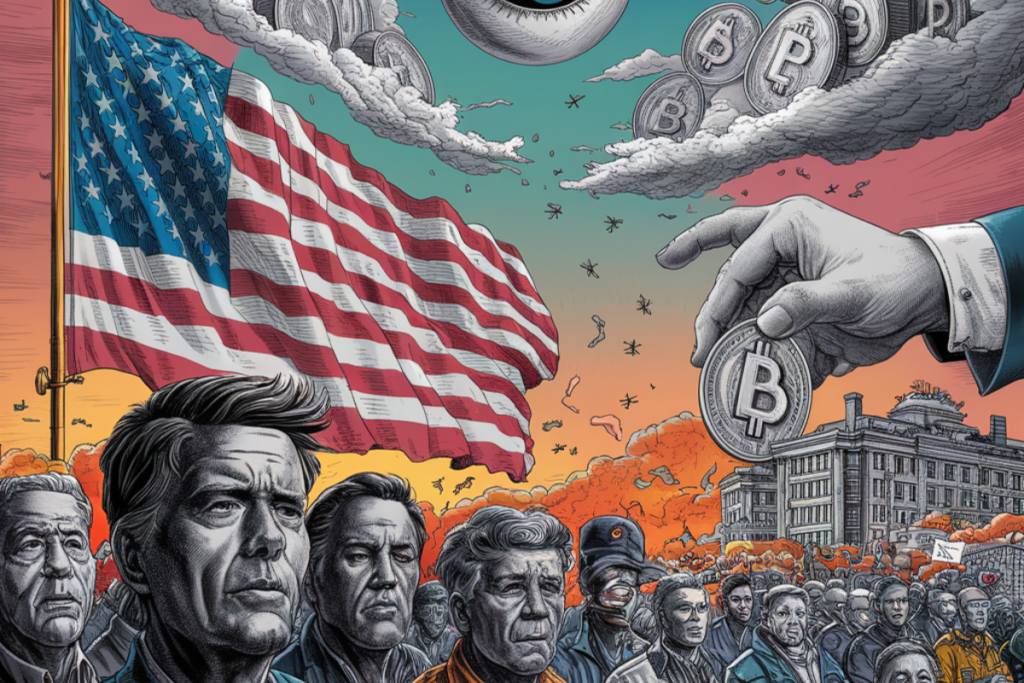
Fri 10 May 2024
4
min of reading 
As the US elections approach, a survey conducted by the Digital Currency Group and the Harris Group reveals deep dissatisfaction among swing state voters with the current financial system. Although 70% consider it “outdated” and call for an overhaul, cryptocurrencies do not unanimously emerge as the alternative.

A financial system that does not benefit everyone
While cryptocurrencies are increasingly entering the political debates in the United States, a recent survey highlights the deep dissatisfaction of voters with the current financial system. The results of the survey, conducted with 1201 voters from six key states, are conclusive: 80% believe that the system in place benefits elites at the expense of the average citizen.
This mistrust is set against a tense economic context, characterized by growing inequalities and a questioning of established models. “Americans feel that the financial system no longer meets their needs and primarily seeks to serve the interests of the wealthiest,” analyzes John Smith, an economist at the Peterson Institute. The numbers speak for themselves: no less than 74% of those surveyed call for a profound overhaul of the system.
This thirst for change, however, faces a complex reality. While cryptocurrencies appear to some as an attractive alternative, they still engender distrust among a majority of voters. Only a third of those surveyed see them as a credible solution to the current dysfunctions, while nearly 75% do not find them more equitable than the traditional system.
Cryptocurrencies, a path to prosperity?
Despite a palpable desire for change, cryptocurrencies struggle to convince the majority of voters. Only a third of them view cryptocurrencies as a credible solution to the current failures of the financial system. Even though 41% see them as a new path toward financial security and prosperity, nearly 75% do not find them more equitable than the traditional system.
This prevailing skepticism contrasts with the enthusiasm of crypto asset holders, 76% of whom are pleased with the positive impact on their financial situation. In evidence of their trust in these digital assets, more than 90% of them plan to maintain or increase their holdings in the next six months. An enthusiasm that is not shared by the uninitiated, since only 7% are considering investing in the short term.
For Laura Jones, an analyst at Chainalysis, this gap can be explained by a still limited understanding of cryptocurrencies among the population: “Cryptocurrencies remain an abstract concept for many, who struggle to grasp their concrete benefits.” Repeated scandals and the high volatility that shake the ecosystem fail to dispel the ambient mistrust, fueling doubts about their reliability and longevity.
While the obsolescence of the financial system is widely agreed upon, cryptocurrencies are not yet touted as a miracle solution. To establish themselves as a credible and viable alternative, they must gain maturity and accessibility, while dealing with a regulatory framework that is becoming stricter.
A significant challenge that will surely fuel debate in the upcoming elections, as the issues related to decentralized finance enter the public discourse. Time will tell if crypto can win over the hearts and minds of American voters, or if it remains the preserve of a minority of convinced insiders.
Maximize your Cointribune experience with our ‘Read to Earn’ program! Earn points for each article you read and gain access to exclusive rewards. Sign up now and start accruing benefits.
Passionné par le Bitcoin, j’aime explorer les méandres de la blockchain et des cryptos et je partage mes découvertes avec la communauté. Mon rêve est de vivre dans un monde où la vie privée et la liberté financière sont garanties pour tous, et je crois fermement que Bitcoin est l’outil qui peut rendre cela possible.
DISCLAIMER
The views, thoughts, and opinions expressed in this article belong solely to the author, and should not be taken as investment advice. Do your own research before taking any investment decisions.






